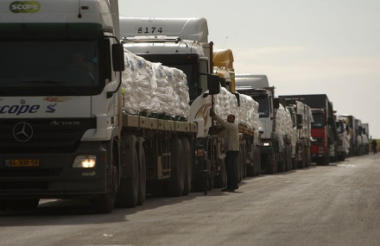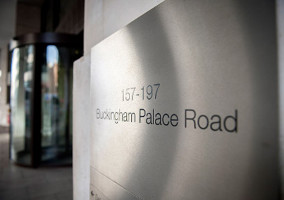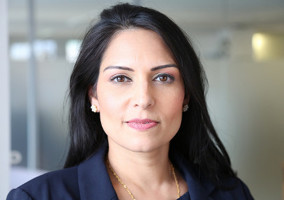If the 0.7 per cent foreign aid pledge was cut, the public would likely give more to charities, who would then look after it better, a representative for the Taxpayers Alliance said at a session on aid spending at the Conservative Party Conference yesterday.
James Price, campaigns manager at the Taxpayers Alliance, told the session on answering difficult questions on aid that “Brits are incredibly generous, in cash terms we’re the second most generous nation in the world after America, and that is under a 30 year tax high which is going up all the time”.
He said: “There is a lot of evidence to suggest that if taxes were cut and maybe we weren’t spending so much on this foreign aid through the state, then people would give more to charity because they would have more money left in their pocket.
“Every evidence suggests that people are that generous themselves, and the evidence also suggests that a lot of charities represented in the room will spend that money more wisely than the government.”
Price was speaking at a session on ‘Why do we give aid to India when it has a space programme? How to answer difficult questions about aid on the doorstep’ at the Conservative Party Conference. The session focused on the 0.7 per cent of national income that the government has pledged to spend on intenational aid, a figure which is backed by the UN.
He said that examples of spending like India’s space programme is “one of the few things that sours the very generous British spirit of charity and philanthropy”.
Price emphasised the point that “there is no such thing as government money, only taxpayers’ money”, and said that “money should be spent based on the good they can do, not making politicians feel good about themselves”.
Price said the focus should be on “trade not aid and giving more money to charities, rather than central government funding is the way to go forwards”. Adding: “The worst possible outcome is of people start to resent the idea of helping people abroad.”
‘We do not make a case for aid’
Desmond Swayne, MP for New Forest West and was minister for state for international development until July 2016, disagreed with Price’s argument on not giving to countries like India who pay out for a space programme, saying that “the poorest countries in the world are the most overwhelmingly misgoverned countries in the world. There is no coincidence in that connection.”
He said the reason that there is so much disagreement from the public over aid spending is in part because it is kept a secret by government. He said that the three main parties agree on the importance of an aid budget, but think “why would we want to rub the faces of the voters of something of which they disapprove by telling them all about it? We do not campaign, we do not make the case for aid.”
Swayne said that this was a “profound mistake in democracy, to continue with such a large expenditure, approaching £4bn a year, and not try to win the support of the voters in favour of it”.
He said: “I want people to be proud of the fact that we are the world’s second most generous donor, rather than embarrassed and angry about it.”
‘Charity begins at home’
Swayne said that this argument comes about because of the “moral question”, and that people believe that “charity begins at home”. But, he points out, “we attribute a meaning to that phrase which is the direct opposite of that of which it was intended by those that coined it”.
He said it came about as a “challenge to the fallacy of Victorian philanthropist, who made all sort of public bequests but treated his family and servants with a meanness”.
However, Swayne said: “If you are a charitable person you are charitable in your nature, your charity will begin at home and spread abroad.
“But we are not dealing with charity. Charity is what you put your own hand in your pockets and distribute. International development aid is taxpayers’ money, extracted from your pocket with all the coercive force of the law. And therefore has to be spent in the national interest, with the expectation of a return. Charity is something you give away, with no expectation of return.”
Swayne pointed out that there is actually a lot of confusion in the general public about how much is spent on international aid, with the expectation often being that it is nearer 10 per cent.
Swayne concluded: “What are we? We spend 99.3 per cent of our incomes on our own domestic priorities. Do you know anyone who spends 99.3 per cent of their income on themselves? Would you want to know such a person? Would such a person have any friends at all?”
|
Civil Society Media is hosting its NGO Insight 2017 conference on 28 November 2017. For more information, and to book, click here. |
Related articles











